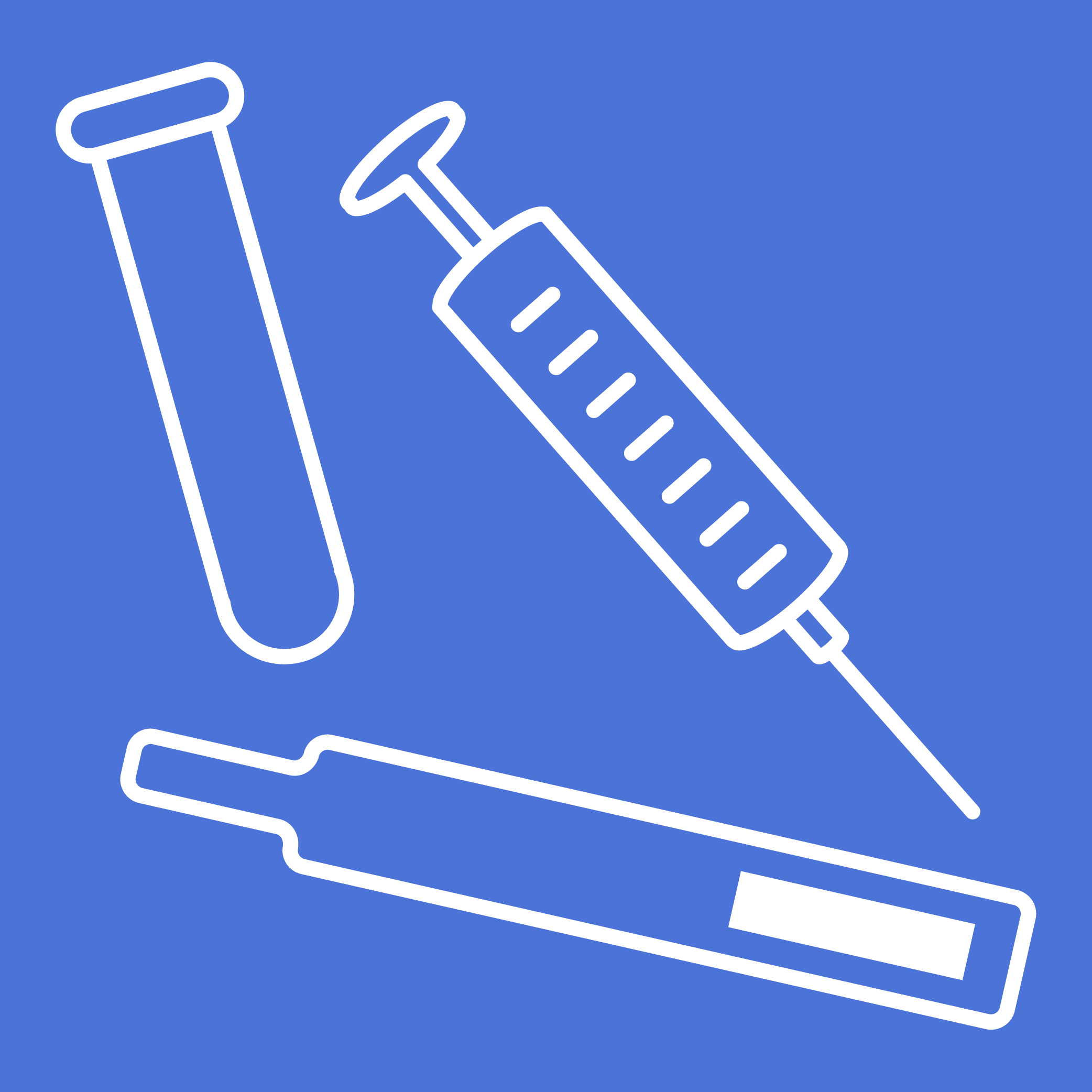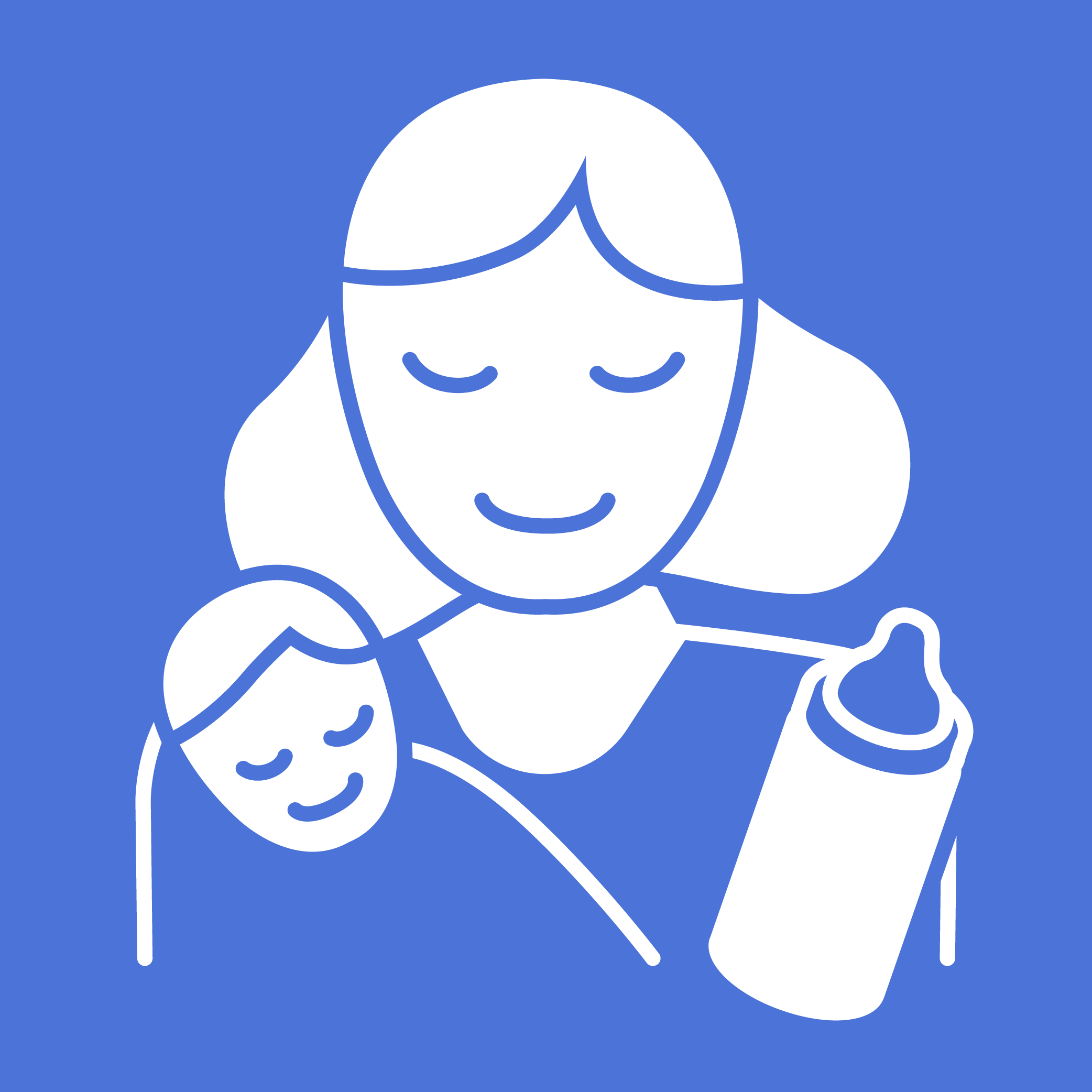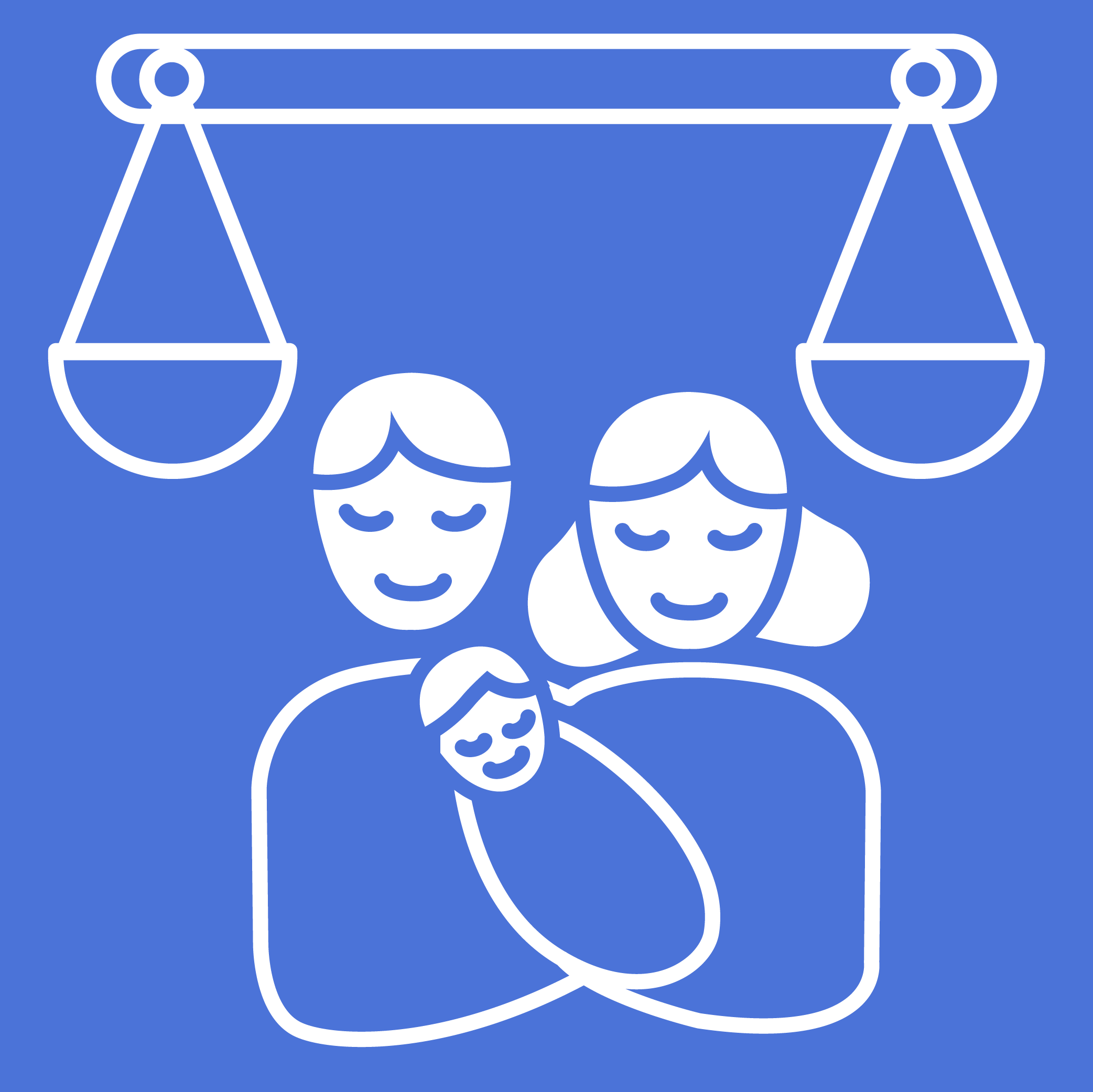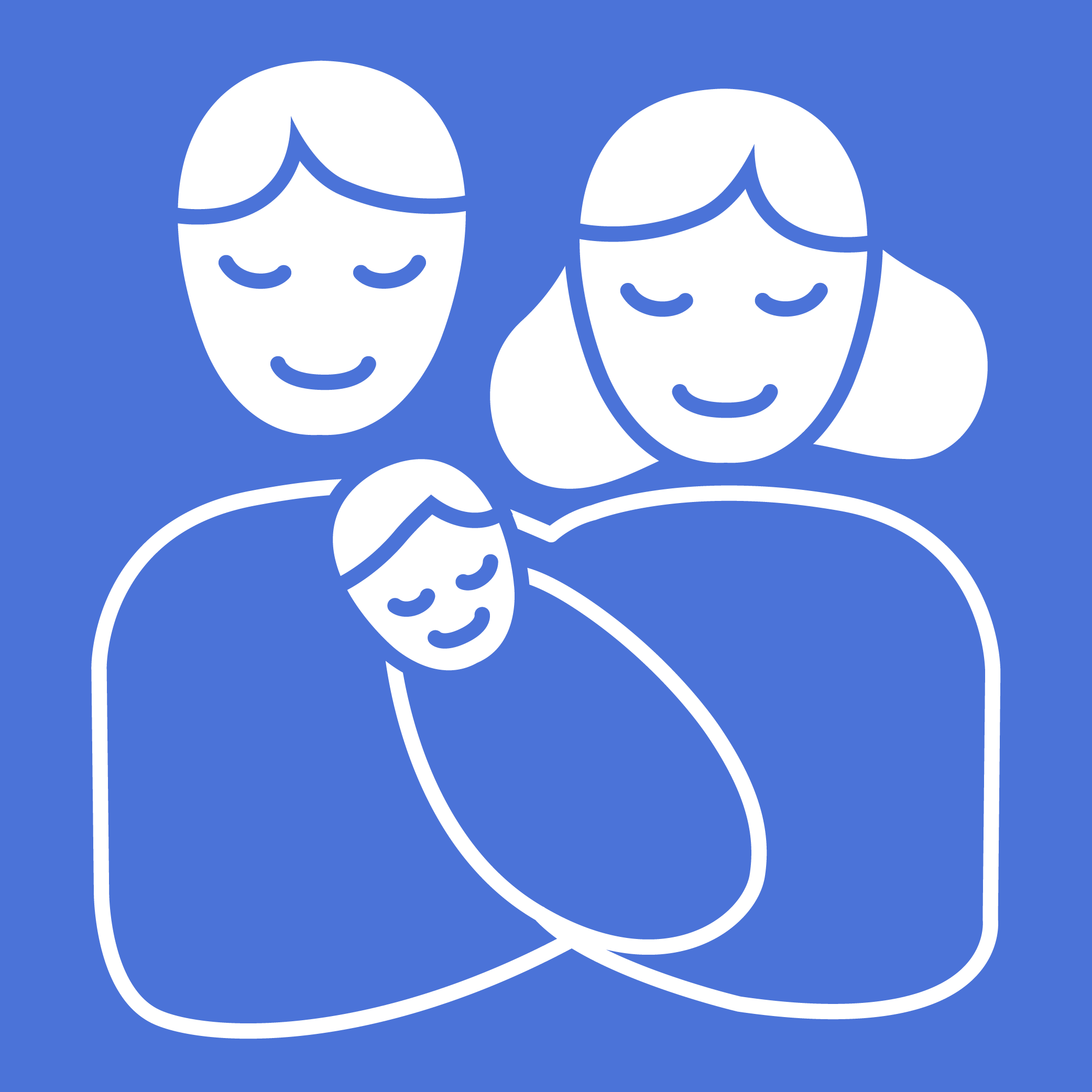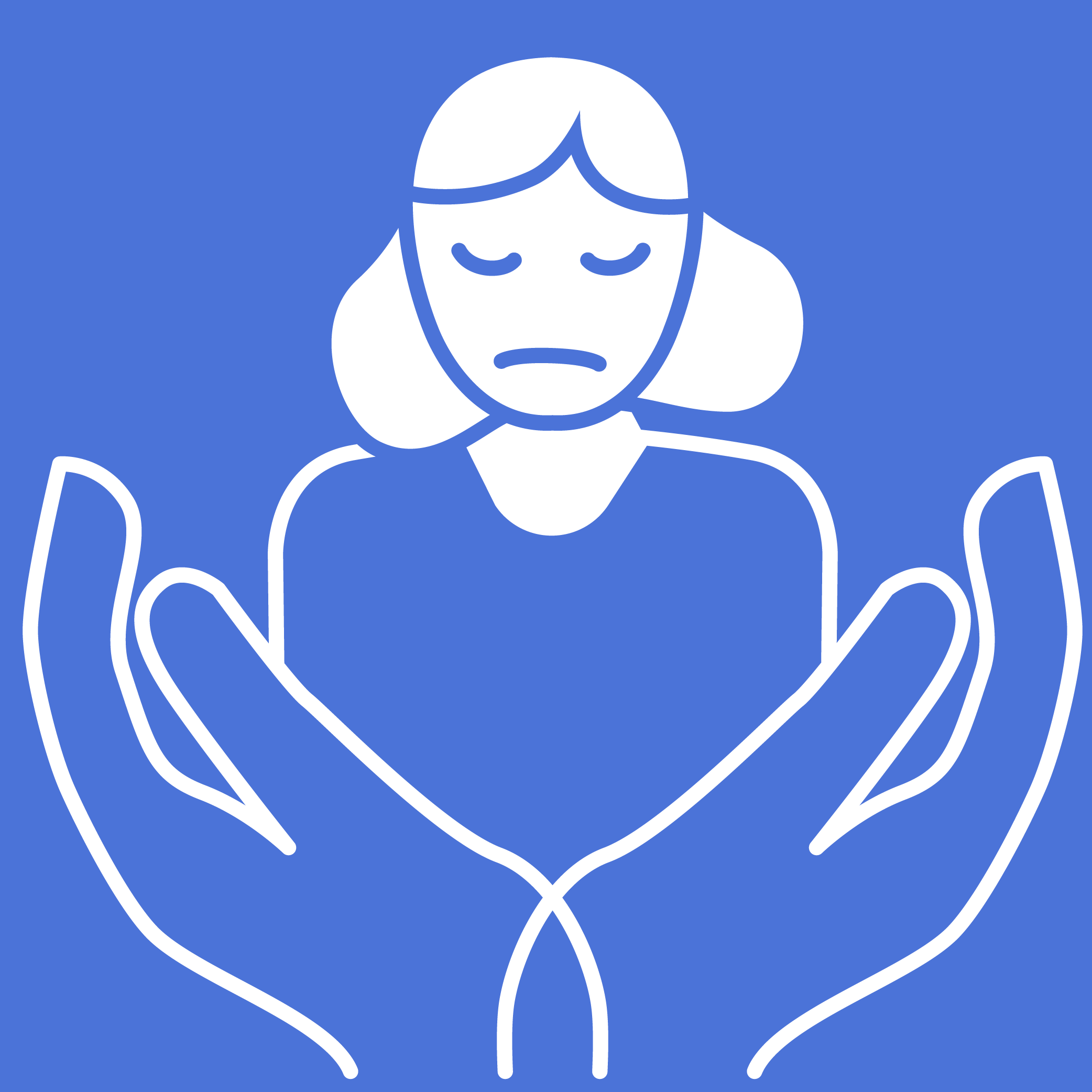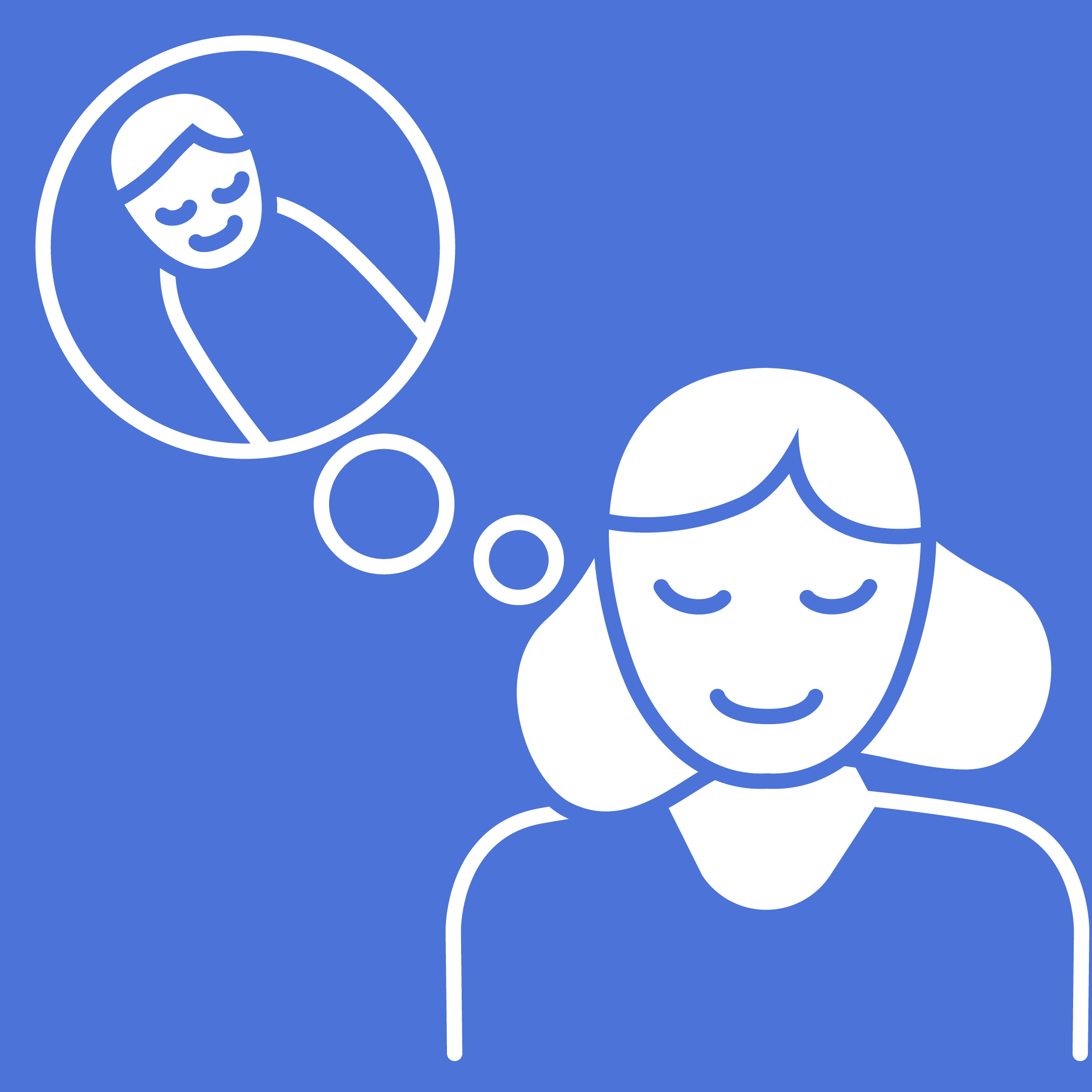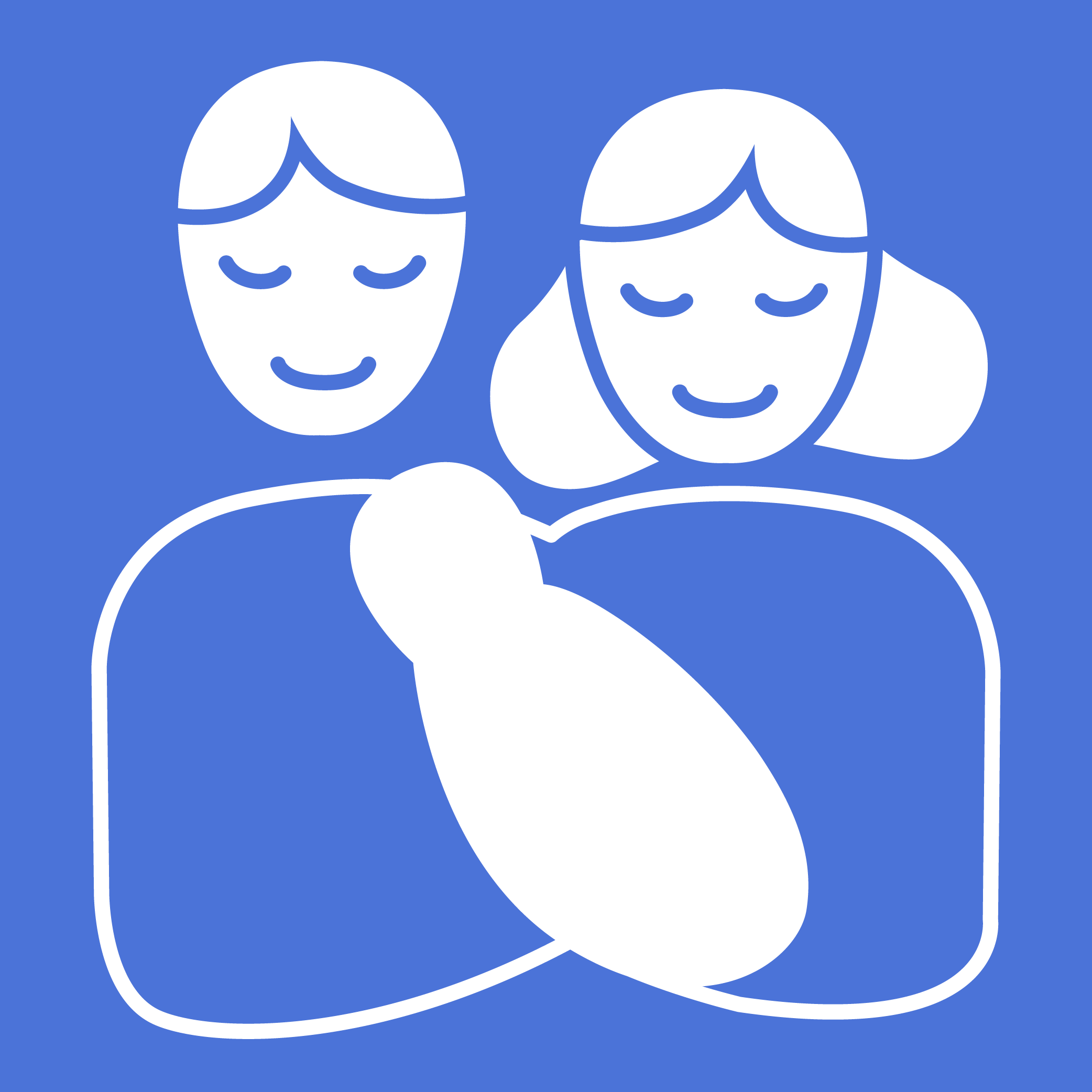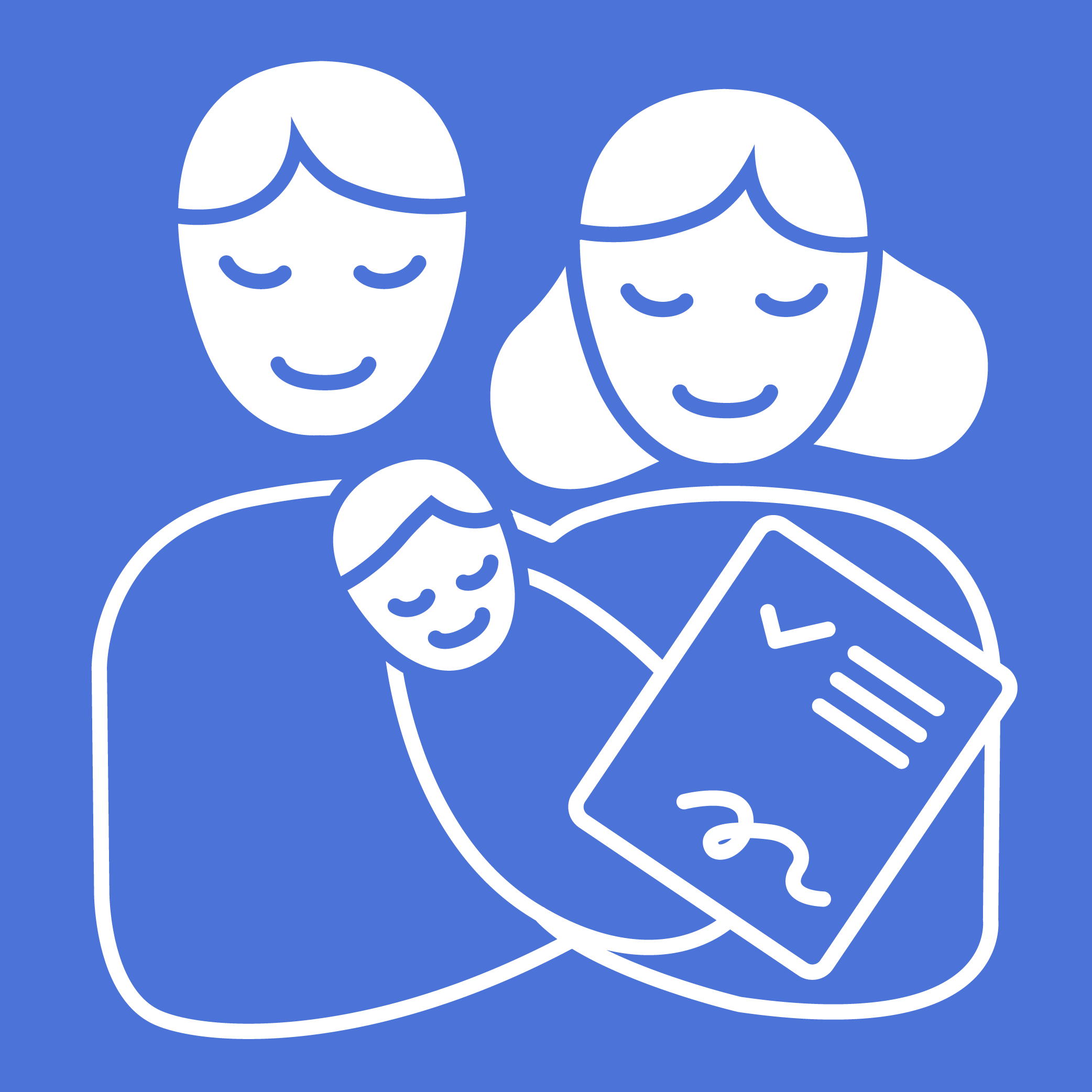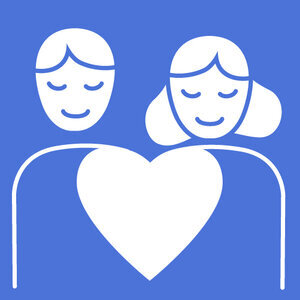
Learn more about The NEW MATERNAL MENTAL HEALTH UNIT AT THRIVE - DEDICATED TO SUPPORTING PEOPLE THROUGH THE PREGNANCY AND PARENTHOOD JOURNEY.
**It's important to remember that everyone experiences these feelings from time-to-time and it doesn't make you a bad parent or mean that you aren't trying hard enough. You are good enough if you are trying your best - we are here to help you if you need further support.
“Participating in the pregnancy support group hosted by Thrive was one of the best choices I’ve made in the last few months. I was hesitant at first, and worried that maybe other mothers’ anxieties might exacerbate my own, but I left the chat room feeling so much more empowered, comforted and validated by other women who understand what it is like to be pregnant at this time. ”
IVF & Infertility
Assisted reproduction techniques, with their sophistication and significant success rates, have brought back hope to couples struggling with infertility. However, fertility treatments can be extremely physically and emotionally demanding. Infertility is almost always accompanied by feelings of anxiety, disappointment, and frustration towards a pressing desire that is not fulfilled, and those feelings can in turn negatively affect the process of treatment. Previous failed IVF attempts, a history of miscarriages, and going through the actual fertility treatment stages, all create an emotional rollercoaster that brings each partner to the limits of their abilities to cope with stress and trauma.
Prenatal Support
We tend to think of pregnancy as a joyous occasion - which it can be. It is also important to remember that for some women, it can be very difficult. Research shows that about 7% of all pregnant women will experience depression during pregnancy, also known as prenatal depression.
Postpartum Support
Having a baby is one of the biggest life changes that we can experience. It can also be a time of tremendous highs and lows. Many new parents feel overwhelmed, anxious, and moody when their baby is born. In fact, it is estimated that up to 80% of new mothers - and some new fathers - will experience the ‘baby blues’. Some parents will experience further challenges including postpartum depression and postnatal anxiety. The good news is that these issues are highly treatable.
Family Adjustment
Having a new baby alters the family dynamics, whether it is between parents, siblings, or in-laws. Many of these changes are wonderful, although some of them can be quite challenging.
From Partners To Parents
Most of us expect that having a child will bring us closer to our partner, but in reality, the opposite can be true. Research by Drs. John and Julie Gottman has shown that about two thirds of all couples experience a significant decline in their relationship satisfaction during the first three years of their child’s life.
Miscarriage & Stillbirth
Parents start weaving their dreams about the baby way before the baby is actually conceived, and losing a child at any stage can have a severe impact on parents. Many people do not realize that miscarriage, stillbirth, and neonatal loss are not uncommon. At the same time, they are extremely painful and difficult. Both parents need time to grieve through the loss and might find it difficult to support one another, let alone themselves.
Single Parenting
Single parenthood encompasses all those situations where a parent finds herself/himself raising a child or children alone - that is, without a spouse or a live-in partner. Single parenthood can occur for a number of reasons, including separation, divorce, abandonment, and death of the other parent. Sometimes, single parenthood occurs through choice. For example, a person will choose to have a child through single-person adoption, artificial insemination, or IVF with anonymous sperm donation. We are here to support single parents - irrespective of their choices and circumstances.
Childlessness
Childlessness refers to the voluntary or involuntary choice an individual or a couple might make to not have a child or children. It can be the result of a conscious, deliberate choice that might be linked to a fundamental lack of desire to have a child, which more frequently than not has to do with one’s relationship with their own parents. In this case, it often concerns healthy and sexually active individuals or couples that live in relative prosperity and choose not to become parents. But it can also be an involuntary, unintended and often inescapable decision to remain childless, that often follows on from a more or less lengthy journey of unsuccessful fertility treatments and/or miscarriages.
Adoption
To adopt, from the latin words “ad” meaning “and” and “optare” meaning “to opt for, to choose”, means to choose, to take - after certain course of actions, as your son or daughter, someone who is not biologically your son or daughter, to admit them in your environment and by extension to turn towards, attach to, and approve of them. There is a movement of adoption inherent to parenthood in all its forms, as attachment to a baby is never automatic, but rather the construction of a bond, always in progress. It’s not enough to merely bring a child to the world and raise him/her; a parent needs to embrace them as an entity that’s different to his/her own, and welcome them in their world, and this is a dynamic that concerns biological children, as much as it does adopted children.
Sex Therapy
It is normal to experience fluctuations in your sexual relationship. For example, many people find that their sexual relationship is most intense at the beginning (i.e., the ‘honeymoon period’) and less so over time. Also, many people notice that their sexual relationship changes after having children.
Some couples are able to navigate these changes on their own. You may require support if these changes and challenges are causing distress for one partner or both.
Psychiatry
We all face difficulties in our lives, but some of them last longer and are more painful than others. A mental health professional - whether it is a psychologist, psychiatrist, or counsellor - can help you reduce your symptoms and learn strategies to help you cope with whatever you are experiencing.
Most people find it relatively easy to reach out to a medical doctor when they are feeling physically unwell, but hesitate to reach out to a mental health professional when they are struggling. Please know that it is ok to reach out for support and that there are evidence-based medications and treatments to help you through your challenges.
Mental health is like physical health - the earlier you seek support, the better (but it is never too late).

FAQ
Q: How can the decision to have a baby affect my wellbeing?
A: Pregnancy is usually considered a healthy condition. However, it is not a straightforward process for every woman. Some women may struggle with getting pregnant, others may face challenges during pregnancy. Even when all is going to plan, physical changes that a woman experiences may affect her physical health and a sense of self. In addition, pregnancy may cause mood swings, feeling nervous or down. All these conditions are likely to affect a woman’s wellbeing by causing anxiety and depression.
Q: What support is available during pregnancy?
A: For good mental health, it is essential to feel supported. A woman who feels supported during pregnancy may feel happier and less stressed. It is important to remember that no one person may give you all you need, and that is why it is good to have support systems both personal and healthcare. While partner, family and friends can be there for you at home, it may be a good idea to get some psychological support from a group of women who are sharing similar experiences with you. These groups are offered to support pregnant women, those who have experienced miscarriage or struggling with infertility issues. If a woman prefers to have individual support, a psychologist may offer her individual sessions to help her process feelings and find strategies to cope with her challenges.
Q: How can I prepare for bringing a baby home?
A: Bringing a baby home is a happy event, but it can also be a responsible and stressful time as babies are fragile and represent a new world of uncertainty. There is no official instruction manual for becoming a parent, but it may be useful to take a parenting class with your partner. Many wellbeing centres offer courses that cover parenting skills and help you prepare for new roles as parents. There will always be a transition from being partners to becoming parents, especially if this is your first baby. It will definitely be beneficial for both parents- to-be to communicate their needs and expectations of each other before the baby arrives. Also, such courses may help a new mother embrace her new role with more certainty and confidence.
Q: What treatment is available for mental health during pregnancy?
A: Treatment for mental health problems in pregnancy and after giving birth can include psychological treatments, including talking therapy, and medicine. Sometimes it is a combination of therapy and medicine. Many women find comfort in activities like yoga, exercise, and meditation. If you’re feeling stressed or overwhelmed, talking to a friend, family member, or faith leader can help you feel better. The best way to develop a care plan is to see a psychologist who can make the right recommendations.
Q: What if I had gone through treatment for a mental health issue in the past, but I am well now? or am I at risk of having postpartum depression?
A: It is highly recommended to have a specialist’s advice as there are criteria that can put you at risk of postpartum depression after delivery. They can be:
Prenatal depression – Depression during pregnancy may be the strongest predictor for later suffering from PPD.
Anxiety during pregnancy
History of depression prior to pregnancy Recent stressful life events
Inadequate social support
Poor marital relationship Low self-esteem
Difficult infant temperament Unplanned or unwanted pregnancy
Q: In what way can depression and anxiety during pregnancy or after birth impact the baby?
A: Early mother-child bonding is important for your baby’s development and becoming close to your baby is a big part of that bonding. When you have depression or anxiety during pregnancy or after delivery, it can be hard to become close to your baby. You may not be able to respond to what your baby needs. And, if there are older children in the house, they may be missing your support as well. The sooner you start, the more quickly you will start to feel better and be able to nurture your family.
Q: What is the difference between baby blues and postpartum depression?
A: Caring for a newborn baby can be very challenging and demanding. No wonder parents feel overwhelmed with the new adjustments during that time. Baby blues is a normal adjustment period that happens during the first two weeks after the birth of your baby. It is not an illness, and lots of women go through it. It goes away on its own, and doesn’t require help from a doctor. If you are past the first two weeks postpartum and you have symptoms of postpartum depression (or anxiety or OCD or psychosis or PTSD) and they are preventing you from functioning as you would like each day, you should reach out to your doctor.
Q: Do I need to tell people around me about this?
A: You don’t have to tell anyone about your illness unless you are comfortable with it. If you decide to share it with someone, you can tell them how things are much more difficult than imagined and that even though you don’t have any noticeable symptoms like fever or cough etc, you are not feeling very well and are seeking some additional support.
Q: How do I help someone going through postpartum depression?
A: What your loved one is going through is a common illness. She will get back to herself, with your support and patience. The most important thing is to be 100% supportive. Let her know that you believe in her, and help her follow through on her therapy recommendations.
Q: How do I know if I should seek help? What happens next?
A: If you have been feeling any of the following for more than 3 weeks, it would be better to consult with a professional:
Feeling extremely sad or angry unpredictably
Feeling confused or having trouble completing tasks • Feeling numb or just going with the flow
Feeling anxious around the baby or children in general
Feeling guilty
Feeling as if failing at motherhood
Feeling exceptionally and uncontrollably irritable
Having little interest in doing previously enjoyable things
Intrusive scary or negative thoughts
You can also take a quick online test.
If you identify that you are experiencing symptoms of anxiety or depression, reach out to a mental health professional who can help you understand more about your situation and possible next steps.
Maternal Mental Health Media Contributions
Pregnancy and infant loss in UAE: Where to find support
MSN News featuring Dr. Sarah Rasmi. Oct 25, 2020
What to pack in your hospital bag in the UAE
Baby & Child. July 05, 2020
Pregnancy and infant loss in UAE: Where to find support
Parenting. Oct 26, 2020
Expect Covid-related rise in perinatal depression, warn experts
Baby & Child featuring Dr, Vassiliki Simoglou. May 6 2020
8 Places to find free maternal mental health support during lockdown
Baby & Child featuring Dr, Vassiliki Simoglou and Dr Sarah Rasmi. May 7 2020
Coping with postpartum mood problems in a pandemic
Baby & Child featuring Pashmi Khare. May 7 2020
Maternity care providers move online to support new parents
Baby & Child featuring Dr. Sarah Rasmi. April 6, 2020
Leaving Dubai: a mother's struggle to adjust back to life in the UK
Baby & Child, featuring Dr. Sarah Rasmi. August 5, 2019
How to prepare an older sibling for baby number two.
Baby & Child, featuring Dr. Sarah Rasmi. September 21, 2018. English Language.
Four ways to rediscover yourself after becoming a mother.
Baby & Child, featuring Dr. Sarah Rasmi. August 28, 2018. English Language.
Why your toddler has temper tantrums and how you should react to them.
Baby & Child, featuring Dr. Sarah Rasmi. June 12, 2018. English Language.
Seven steps to managing a major toddler meltdown.
Baby & Child, featuring Dr. Sarah Rasmi. May 21, 2018. English Language.
How not to pass on your disordered eating habits to your child.
Baby & Child, featuring Dr. Sarah Rasmi. March 26, 2018. English Language.
Why multicultural families thrive in Dubai.
Baby & Child, featuring Dr. Sarah Rasmi. March 14, 2018. English Language.
Why we should love our husbands more than we love our kids.
Baby & Child, featuring Dr. Sarah Rasmi. December 21, 2017. English Language.
Why we should love our husbands more than we love our kids.
Baby & Child, featuring Dr. Sarah Rasmi. December 21, 2017. English Language.
How to help your child make friends this summer.
Mother, Baby & Child Magazine. June 3. 2017. English Language.
Why is my toddler rejecting me?
Baby & Child, by Dr. Sarah Rasmi. May 3, 2017. English Language.
Is it ok to cuddle my child to sleep?
Baby & Child, by Dr. Sarah Rasmi. April 4, 2017. English Language.
Thrive Specialists in Maternal Mental Health
Sonia Singhal, M.Ed., M.A., LMFT
Licensed Psychologist & Lead Assessment Specialist
Sonia Singhal is a CDA-Licensed Psychologist and a California Licensed Marriage & Family Counselor. She has a Masters of Education in Psychology from Columbia University in New York. Sonia specializes in psychological and educational assessments and she provides individual, family and couples therapy. She holds a special interest in attachment theory and family systems and is passionate about supporting teenagers and adults to overcome emotional and psychological difficulties.
Dr. Kate Prozeller
Licensed Psychologist
Dr. Kate Prozeller is a CDA-licensed psychologist. She holds her PsyD in Counseling Psychology from Saint Mary’s University in the United States. Dr. Kate provides individual therapy to adults, couples therapy, and English-language art, sand, and play therapy to children and adolescents. Prior to relocating to Dubai in 2019, she has worked as a psychologist in the United States, serving a variety of patient populations and across hospitals, private practice, and university settings.
Pashmi Khare, M.Sc.
Licensed Social Counselor
Pashmi Khare is a CDA-licensed psychologist with MSc in Counseling Psychology from Christ University, India and has been practicing for more than 8 years in India and UAE. She provides counseling for adults, adolescents, and couples in English, Hindi, and Urdu. She has a special interest in supporting individuals with fertility issues and PCOS.
Dr. Vassiliki Simoglou
Licensed Psychologist
Dr. Vassiliki Simoglou is a CDA-licensed psychologist. She completed all her studies in Psychology in France, and is a licensed psychologist in Greece and the European territory, and in Dubai by the CDA. Dr. Vassiliki holds a PhD in Psychoanalysis and Psychopathology from Sorbonne Paris Cité - Paris Diderot University in Paris, and a Bachelor’s and Master’s Degree in Clinical Psychology from the University Louis Pasteur of Strasbourg. She also holds a Master’s degree in Psychoanalytic Studies from the University of Essex in the UK. She has been working as a psychodynamically oriented psychotherapist for more than 14 years, in Dubai, Paris and Athens. She offers individual counseling and psychotherapy for adults and adolescents (15+), couples therapy, family therapy, and perinatal and infertility counseling - in French, English and Greek.
Maša Karleuša Valkanou, M.Sc.
Licensed Psychologist
Maša Karleuša Valkanou is a CDA-licensed psychologist in Dubai. As a certified Systemic Family psychotherapist, she works with individual clients, adults or children. She is specialised in work with adolescents. She works with couples, parents or the whole family together. Her work covers various psychological difficulties and background including psychotic disorders, addictions, neurotic disorders (depression, anxiety, panic attacks etc.), psychological trauma, abuse, self-harm, suicidal thoughts and feelings, behavioural, emotional and problems in relationships or family problems.
Dr. Elif Celebi
Licensed Psychologist
Dr. Elif Celebi is a DHA-licensed and US-trained Clinical Psychologist with 12 years of post-qualification experience. She has a particular interest in using mindfulness, emotion regulation and other evidence-based approaches to balance compassion, acceptance and change. Dr. Elif clinical expertise includes working with depression, anxiety, trauma, adjustment/life transitions, grief and loss, borderline personality disorder, and dissociation.
Jessica Rosslee, M.A.
Licensed Psychologist
Jessica Rosslee is a DHA-licensed Clinical Psychologist. She obtained her Master’s degree in Clinical Psychology at the University of the Free State, South Africa, in 2011. Jessica’s clinical interests and extensive expertise cover a broad range of mental health conditions or problematic concerns.
Dr. Diana Cheaib Houry
Licensed Psychologist
Dr. Diana is a CDA-licensed psychologist with a Ph.D. in Psychopathology and Psychoanalysis from the University of Denis-Diderot in France. She has a special interest in women’s health and has dedicated over 10 years to researching and studying women’s discomfort and mental issues and how they relate to culture and identity conflicts. Dr. Diana has a psychodynamic therapeutic orientation, which allows a deep understanding of the difficulties a person can go through.
Joslin Gracias, M.A.
Licensed Psychologist
Joslin is a CDA-licensed psychologist. She holds an M.A. in Clinical Psychology from S.N.D.T. University in India. Joslin works with adolescents, adults, and couples who are experiencing depression, anxiety, relationship difficulties, trauma, and burnout/stress.
Zuha Zubair, M.Sc.
Licensed Psychologist
Zuha is a CDA-licensed psychologist. She holds an M.Sc. in Clinical and Abnormal Psychology from Swansea University (UK). She used a client-centered approach deeply rooted in compassion and warmth, tailoring therapeutic aid to each client based on their needs and personality. She has been trained in Cognitive Behavioral Therapy, Dialectical Behavioral Therapy, and Acceptance and Commitment Therapy.
Corina Saramet, M.A.
Licensed Psychologist
Corina is a CDA-licensed psychologist specializing in working with adults and adolescents (16+). She obtained her Master’s Degree in Cognitive Behavioral Psychotherapy at the University Titu Maiorescu in Romania. Her areas of expertise include anxiety disorders, depression, grief and loss, trauma, and stress.
Dr. Dana Jammal
Licensed Psychologist
Dr. Dana is a UK-trained HCPC registered Counselling Psychologist who completed her doctorate training at City, University of London. She also holds a Master of Science degree in Mental Health Studies from the Institute of Psychiatry, Psychology and Neuroscience at King’s College London and a Bachelor of Science Honors degree in Psychology from McGill University in Canada. Dana has over 10 years experience working with individuals facing a range of mental health difficulties and challenges.
Rita Figueiredo, M.Sc.
Licensed Psychologist
Rita Figueiredo is a Clinical and Health Psychologist with an M.Sc. from the University of Lisbon in Portugal. She is licensed by the DHA and CDA, and also holds a European Certificate in Psychology. Rita enriches her practice with four years of extensive experience. She is driven by a profound passion for understanding relationship dynamics. As a result, Rita pursued specialized training in Couples and Family Therapy. This expertise equips her with the necessary tools to assist clients in navigating complex relationship issues, guiding them towards achieving happiness and relational well-being.
Dr. Ash Shishodia
Consultant Psychiatrist
Dr. Ash Shishodia is a Western-trained General Adult Psychiatrist (Addiction Psychiatry endorsement) and Neuropsychiatrist with over 15 years experiencing working with an ethnoculturally diverse population. I am comfortable working with mild, moderate, and severe cases, including major mental illness, and neurological disorders with mental health.
Dr. Manuela Paone
DHA-Licensed Psychologist
Dr. Manuela is a DHA-Licensed Clinical Psychologist (Dubai) with active licenses in the UK and Italy. She has over 20 years of experience supporting adults through a range of challenges including anxiety, depression, and relationship issues (parent-child as well as marital). Dr. Manuela has a special interest in neurodivergence, including Autism Spectrum Disorder and ADHD. She has a wealth of experience in the UK and Middle East, which has provided her with an opportunity to work with people from diverse cultural contexts, integrating culture, religion, and personal background into her work.
Christi Gadd, M.Sc.
DHA-Licensed Psychologist
Christi Gadd is a DHA licensed Clinical Psychologist (Dubai) and an HPCSA registered Clinical Psychologist and Neuropsychologist (South Africa). She has many therapeutic interests including anxiety, depression, and relationship challenges. Christi is particularly interested in the transition to expat life. One of the things she loves most is accompanying people on their journeys of self-discovery and self-actualization. Her interests are best summarised as a curiosity to learn more and more about what makes us human, especially our brains.


